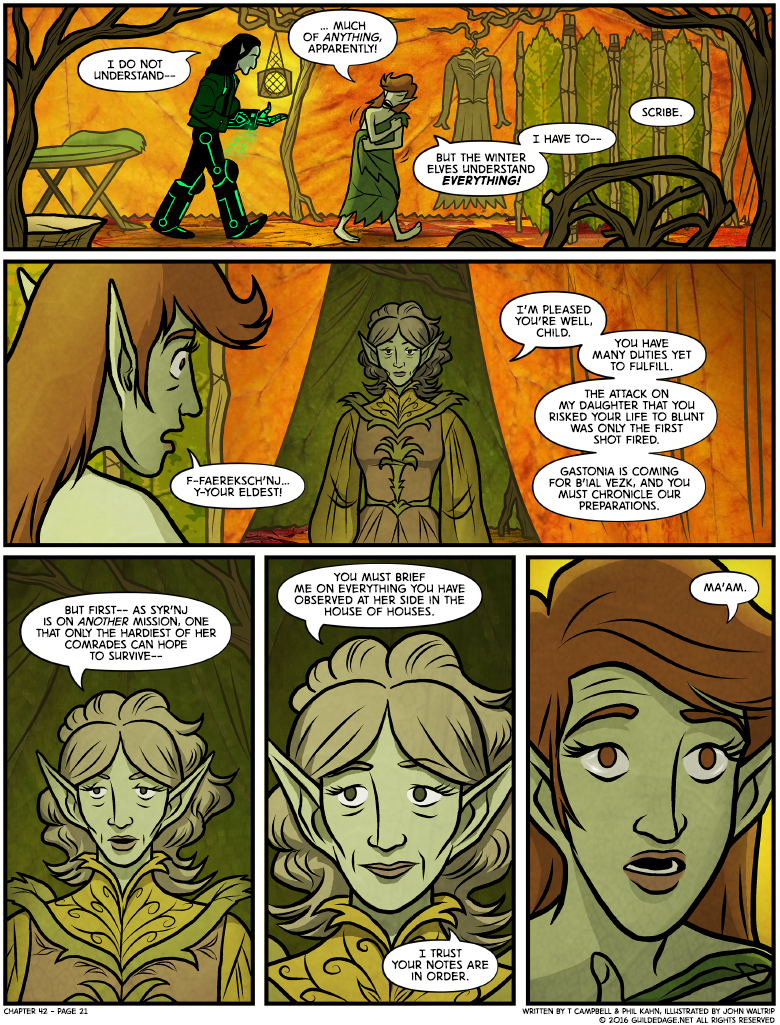Annotated 42-21
 Dang, Faereksch’Nj just gave Kur’Ik the Full Politician here. Kur’Ik’s determination might’ve withstood the most obvious objection to her participation: she barely remastered walking thirty seconds ago and still has far too much poison in her system to risk a trip into the freezing wastes. Faer touches lightly on that argument but spends a lot more time addressing Kur’Ik’s real problem: she has some reason to feel cast aside as unimportant.
Dang, Faereksch’Nj just gave Kur’Ik the Full Politician here. Kur’Ik’s determination might’ve withstood the most obvious objection to her participation: she barely remastered walking thirty seconds ago and still has far too much poison in her system to risk a trip into the freezing wastes. Faer touches lightly on that argument but spends a lot more time addressing Kur’Ik’s real problem: she has some reason to feel cast aside as unimportant.
Faer’s words soothe that hurt and treat Kur’Ik as a truly essential worker. That doesn’t mean Faer is lying (she does need insight into Gastonia now that it is once more her enemy, and record-keeping is important in wartime), but it’s about how the truth is presented, sometimes. Kur’Ik, her need addressed, reverts to the awed deference she more normally shows to the ‘Nj family.
FB: “Faereksch’Nj may not have time for a GUILDED AGE archive dive, but it’s Friday, so YOU do!”











I don’t think I ever understood how to pronounce Faereksch’Nj, or perceived the reference. Can someone please enlighten me?
For such enlightenment, do you have something to offer in fair exchange?
No need, though, it’s freely given.
Nice!
So…
What’s the reference? OuO
Hate to spoil Tavis’ joke, but it’s a rough homophone for “fair exchange.”
I missed that one, too. Syr’Nj and Fr’Nj were so completely obvious to me as to feel a little blunt but Faereksch’Nj was just some letters. And I think I just noticed the reason: “Fair exchange” has the emphasis on the last syllable, but the name has an apostrophe at that position, thus a de-emphasized syllable. Impossible to use the same intonation, thus, and suddenly the whole rythm/melody changes, and the word becomes unrecognizable to my ears, because I can’t read it and not emphasize the second syllable.
The ‘mphas’s is on the wrong s’llabl’
When I read Guilded Age the first time, I thought it was pronounced it like “ver-reksh-ndzh”, because the first two syllables would’ve had a little meaning in my native language where it’s usual to read “sch” as “sh” (as in “ship”). But I thought that didn’t make sense. Only when starting to read the annotated version, I found the explanation.